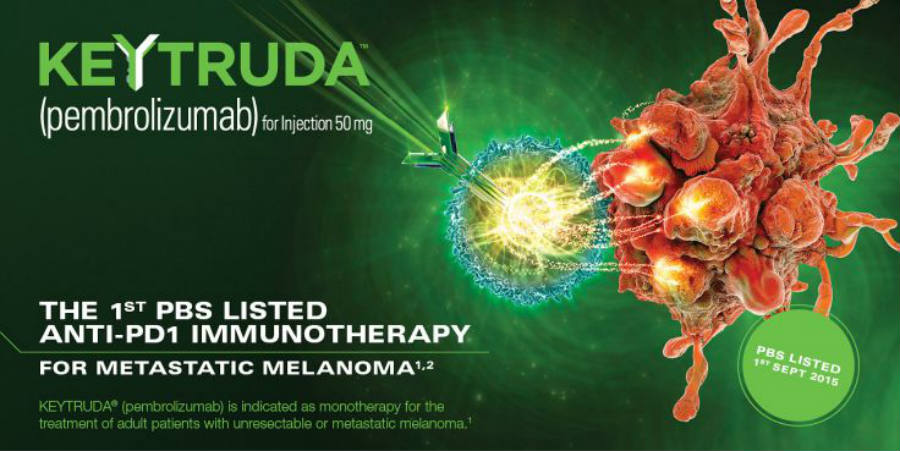A new drug called Keytruda is giving patients diagnosed with melanoma longer lives and a lot of hope. The American Society of Clinical Oncology released a study that shows 40 percent of patients treated with the new component are still alive and well after 3 years of therapy.
It is important to know melanoma is one of the most aggressive forms of cancer, and its sufferers usually die only months after the diagnosis. Dr. Caroline Robert led the research team, and she told the press she is very excited about the results.

“I spend my time telling my residents that these patients would be dead if it was five years ago,” said Dr. Caroline Robert on a press release.
Melanoma – or malignant melanoma – is the most dangerous type of skin cancer, and it is more common in men than in women. It usually starts as a mole or pigmentation on the skin. Women have to be especially careful with these kind of moles on their legs, while in men, melanoma is more commonly present on their backs. Scientists say the most common cause is UV radiation from either natural or artificial sources, and they say the disease is more common in Australia and New Zealand.
One of the aspects that makes this kind of cancer so dangerous, is the fact that it tends to spread to other organs. Once it invades other parts of the body, the treatment gets much more complicated, and the fatality rate increases. If detected on time, removal by surgery is the most common procedure, but the statistics say that only 17% of the cases are spotted before the virus starts spreading.
Medsafe's approval of Keytruda alternative, Opdivo, is welcome news https://t.co/WSNtPMIZJ9
— Checkpoint (@CheckpointRNZ) April 29, 2016
A new solution for melanoma
Cancer is a master of hide and seek. It blends within our system, and our immune agents fails to identify it. Because of this, until recently, doctors used to focus their efforts on treating the disease from outside. However, a new trend appeared by 2010. A group of specialists started talking about inhibitors which are drugs that unlock our immune system’s capabilities allowing it to detect cancer.
Our bodies are living farms. A diverse pool of life dwells in it including bacteria and microbes. And it’s worth mentioning not all of them are bad. In fact, people need a lot of them to maintain our systems running perfectly. That is why our immune system does not work at full capacity. However, viruses like cancer are using this to their advantage. According to some scientists, people can use inhibitors to unlock this parameters, like overclocking a CPU, and humans own bodies will be able to deal with the problem.
So far, the method has proven ground breaking. It is the first approach to give humanity hope on curing cancer. Former president, Jimmy Carter, has been using keytruda for a year, and he seems to be doing well.

The new study presented by Dr. Caroline Roberts is a follow up, and 40% of the original study group is still alive. Not only that, according to the researchers, they have normal lives and are functional parts of society.
It is too soon to chant victory, but it is a huge leap in the right direction. There are some issues, such as side effects that have to be dealt with. Not everything is perfect, and some patients have had a bad reaction after using the drug. Even though rare, some of them present rashes and internal inflammation, but the problems are easily reversible by suspending the use.
There is also the financial aspect; the treatment is not for everybody because it costs more than $100.000 a year, but the results are well worth the investment.
Source: Wall Street Journal
